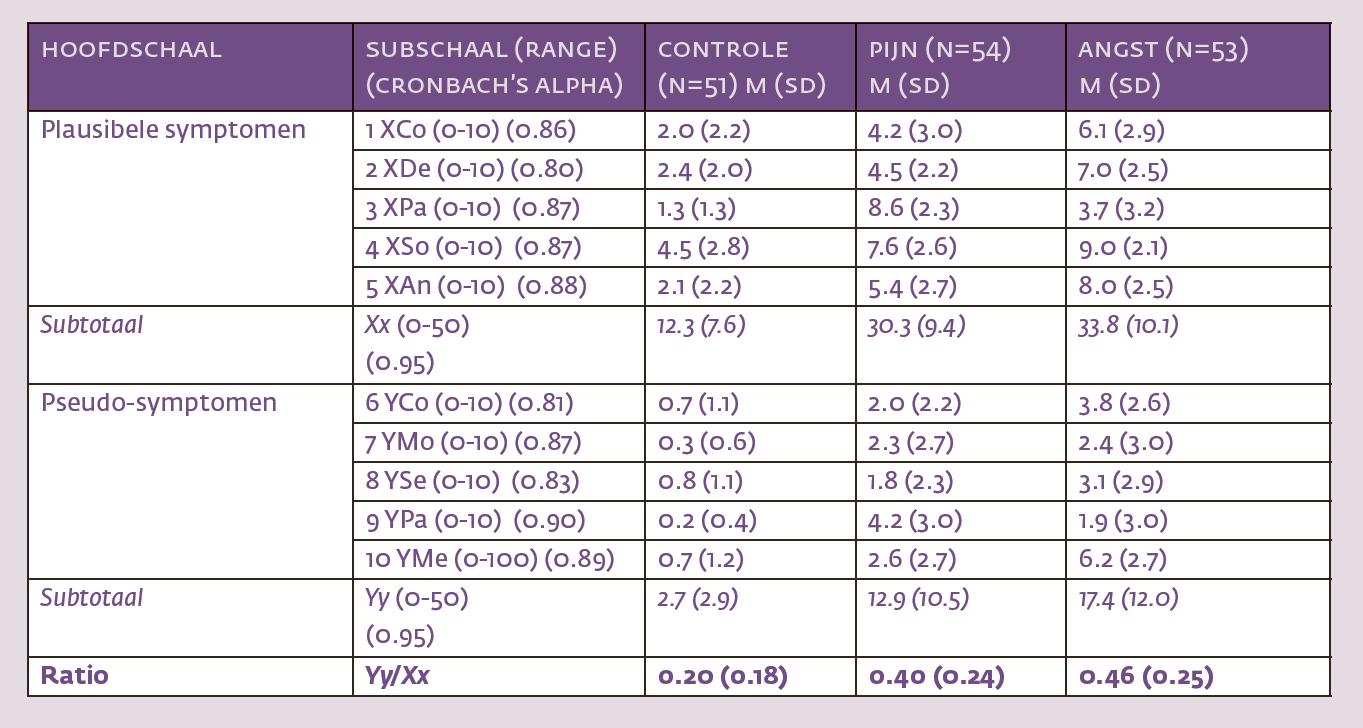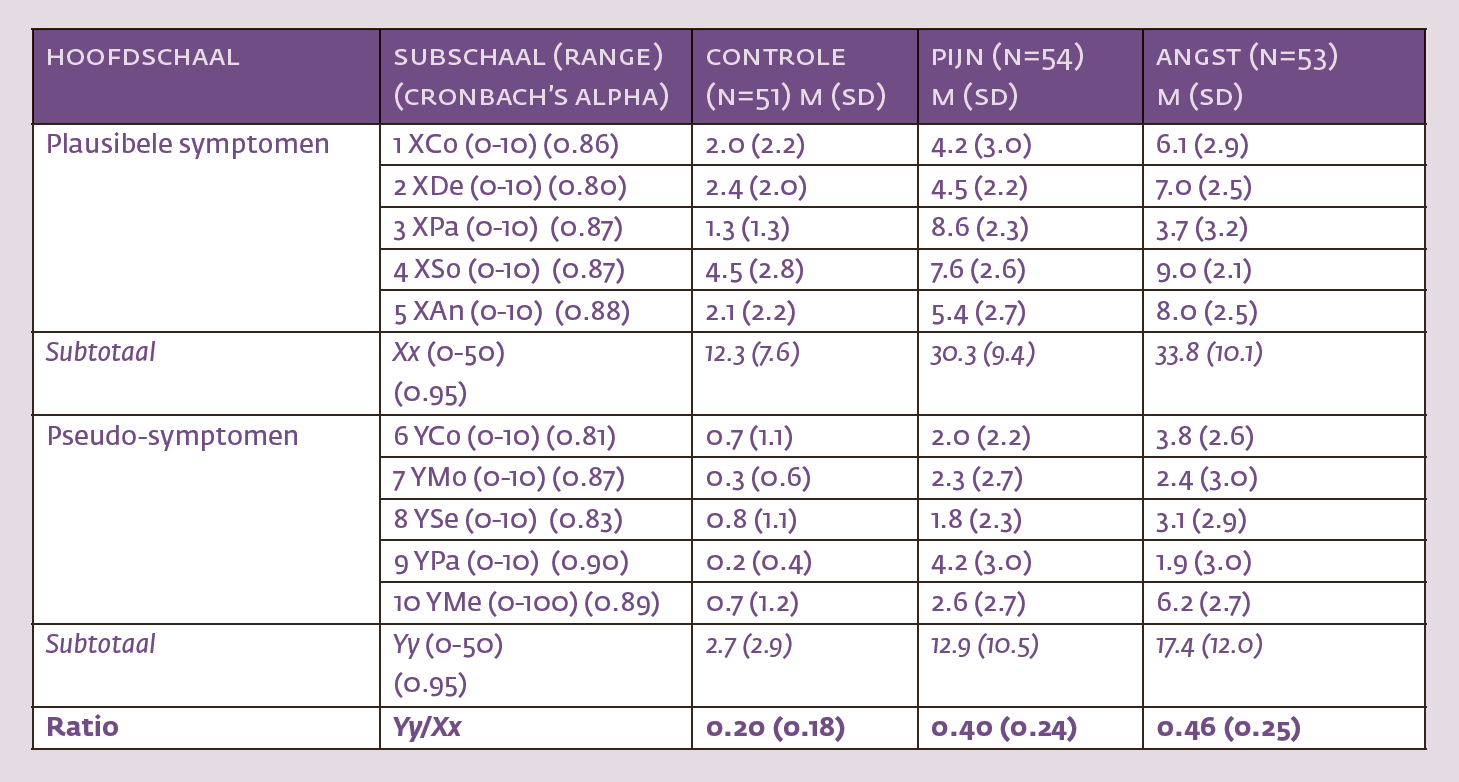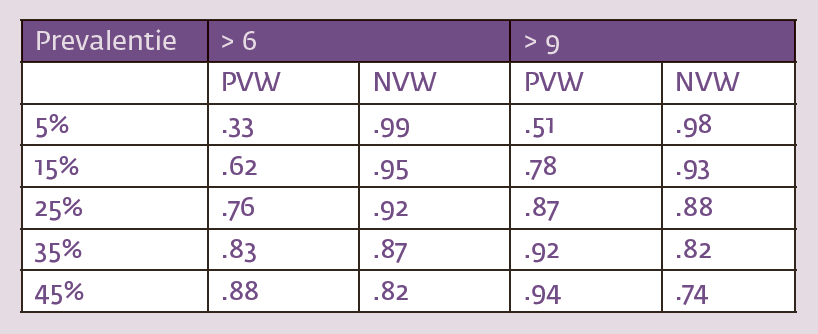Inleiding
Zoiets komt zeker voor, maar patiënten kunnen ook om andere redenen een overdreven voorstelling van hun klachten geven. Ze kunnen bijvoorbeeld klachtenlijsten slordig invullen en dat kan torenhoge scores opleveren (Meyer et al., 2013)13. Wat ook de oorzaak, het is belangrijk dat de diagnosticus klachtenoverdrijving onderkent en met zoveel woorden benoemt. Want als klachtenoverdrijving onopgemerkt blijft, kan het leiden tot een verkeerde inschatting van wat de patiënt mankeert (Kirkwood et al., 2012; Merckelbach et al., 2014)59.
Twee verdere opmerkingen zijn op hun plaats. Om te beginnen: buiten het strafrecht vormen patiënten die klachten overdrijven weliswaar een minderheid, maar het is geen verwaarloosbaar kleine groep. Zo vonden Dandachi-FitzGerald et al. (2011)3 in hun onderzoek onder ggz-patiënten die waren verwezen voor psychodiagnostiek, dat zo’n 20% van hen een overmaat aan pseudosymptomen aankruiste op de Structured Inventory of Malingered Symptomatology (SIMS; zie onder). Bij patiënten van algemene ziekenhuizen varieerde dat percentage





